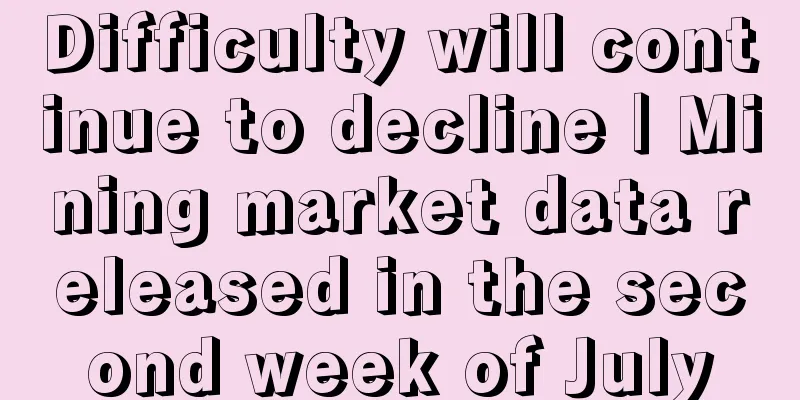Deloitte's one-stop blockchain platform Rubix

|
Earlier this year, Deloitte, one of the Big Four international accounting firms, made headlines when it revealed that it had begun experimenting with blockchain technology. What may differentiate Deloitte from its peers is that the company is looking for proofs of concept using emerging technologies to help clients, including mainstream financial institutions. To better understand Deloitte’s approach to this new market, CoinDesk spoke with Iliana Oris Valiente, business development manager and co-founder of Rubix, Deloitte’s “one-stop blockchain software platform.” After about a year of research and development, Deloitte launched the Rubix platform. Oris Valiente said that Deloitte is now able to use blockchain technology to help corporate clients, and in her opinion, this is just the beginning of future possibilities. Oris Valiente said:
Crowded fieldHowever, Deloitte is not the only company trying to use blockchain to serve the market. Its competitors include technology giant Microsoft and auditing giant PwC, both of which have launched similar plans. Given the competitive landscape, Oris Valiente was cautious not to reveal details about current projects, though she did hint at some of the work the company is doing. For example, Oris Valiente told CoinDesk her team is currently working with clients in the healthcare space to build a prototype that could be used for payments. Other possible areas of focus, she added, would be looking at applications in the loyalty
Multi-protocol platformPerhaps most notably, Rubix provides its clients with access to multiple distributed consensus platforms. According to Oris Valiente, most of Rubix’s work to date has focused on the Ethereum protocol, which she believes is very attractive to enterprise clients. Ethereum was launched in 2014. Like Bitcoin, it is also an open, public blockchain, but because it includes a Turing-complete scripting language, its goal is to serve as a platform for building various types of distributed applications (DApps). “Often when people describe the benefits of blockchain technology, they’re referring to what Ethereum can build without realizing it’s Ethereum,” she said. A key advantage of the Ethereum protocol, Oris Valiente said, is that its clients can use it to build their products while being able to connect with other platforms. The value of BitcoinOris Valiente also spoke about mainstream financial institutions’ interest in private or permissioned blockchains. Along the way, she was quick to point out that these institutional efforts may be problematic. For example, many large financial institutions have reservations about Bitcoin as a digital currency, while pursuing projects that do not require the use of digital currencies or restrict access to similar digital tokens. However, Oris Valiente pointed out that the existence of tokens is inevitable in order to maintain a distributed ledger system. “You can’t have a blockchain without tokens,” she explained. Oris Valiente also stated that she believes digital currencies have the potential to succeed in the future:
New MarketsWith this in mind, Oris Valiente said clients are looking to use blockchain technology in emerging markets to build new products that would not have been possible to create before. A good example of this, she said, is in the insurance industry, where blockchain technology can be used as a way to remove the trust relationship between consumers and insurance companies. But how far are we from such applications? Oris Valiente said she believes this shift is likely to happen once the industry moves beyond the exploration phase and begins to enter a period of consolidation. “Once you start to see these little Lego blocks come together and become an integrated network, I think you’re going to see a lot of very meaningful impacts,” she said. “But it’s definitely going to take a few years.” Original article: http://www.coindesk.com/how-deloitte-rubix-blockchain-tech/ |
<<: Minnesota Commerce Commission warns people to be cautious when buying Bitcoin
>>: How to achieve fast and cheap payment? Try the new Ripple Gateway
Recommend
Where is the House of Land and Property? Is it good to have a mole in the House of Property?
Traditional physiognomy covers a wide range, among...
Is it good to have a mole on your neck? What does it mean?
Everyone has moles on their body. Moles are very ...
Is it good for people with prominent brow bones to have good fortune?
The forehead is an important part in physiognomy,...
Tesla CEO Elon Musk: Built a Dogecoin mining machine with my kids
According to BlockBeats, on February 20, Tesla CE...
Bitcoin breaks through $10,000, hitting a 80-day high
“When I woke up, the cryptocurrency world went cr...
The person with a mole on the buttocks may be your lover in the previous life
What is the legend of having a mole on the buttoc...
The face of continuous wealth
The face of continuous wealth 1. The best way for...
Xiao Lei: Why is Bitcoin still so expensive?
In the past two months, the price of Bitcoin deno...
Beware of the "Musk Cult": A horrific experiment in manipulating human nature and human group behavior
On that day, the prices of all virtual currencies...
What is the appearance of a man with light eyebrows?
What does a man with light eyebrows look like? So...
Why is it said that a high forehead is a symbol of good luck for men?
Men with high foreheads are successful in their c...
How to explain the appearance of a man with thick upper and lower lips
Different facial features give people different f...
What does it mean for a woman with bad ears? A complete guide to ear readings!
Ears are one of the five senses that bring us sou...
Does a fork in the lifeline on the palm indicate a serious illness?
How to read the lifeline diagram on palmistry? In...
Analysis: $1.55 billion in Bitcoin options expire on Friday, more bearish outlook
$1.55 billion in Bitcoin options are set to expir...









